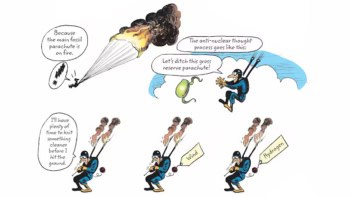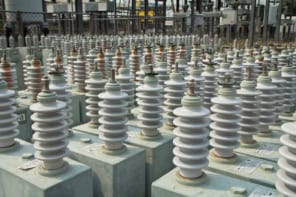In a world where post-truth, alternative facts and fake news are everyday terms, a team of researchers have developed a strategy to help debunk misinformation about climate change.
In their paper, published today in Environmental Research Letters, they present a process for evaluating climate change denialist arguments, and how to apply it to common denialist claims.
Dr John Cook, from the Centre for Climate Change Communication at George Mason University, Virginia, is the paper’s lead author. He said: “Misinformation spreads easily, and can have profound consequences for society if left uncorrected. Climate science is particularly problematic because it describes such a complex system.”
Dr Cook explained: “When people lack the expertise to evaluate the science, they tend to substitute judgment about something complex (i.e., climate science) with something simpler (i.e., the character of people speaking about climate science). This can leave them vulnerable to misleading information. The advantage of our approach is that you don’t need to be an expert in argumentation or climate science to put it to use.”
The team’s six step process, based on critical thinking methods, helps people detect and analyse poor reasoning. It includes detailing argument structures; determining the truth of premises, and checking for validity, hidden premises, or ambiguous language.
Co-author Peter Ellerton, from the University of Queensland, said: “Often, refuting denialist arguments focuses on scientific information – showing that temperatures are in fact rising, or that there is indeed a scientific consensus that human activity is responsible.
“We complement this approach by helping find the flaws in misinforming arguments and explain how the reasons they offer don’t support their conclusions.”
The researchers applied their approach to 42 common climate science denialist claims, and found that, in a variety of different ways, all demonstrated erroneous reasoning.
Dr Cook explained: “A common denialist claim that we’ve seen recently goes: ‘It’s cold outside, so global warming isn’t happening’. If we break the logic of this argument down, we see that it implies that because some parts of the world are experiencing record cold temperatures, the world cannot be warming. While the first premise is true – some places are seeing record cold temperatures – the argument as a whole is false, because global warming doesn’t mean that cold will never happen anywhere.
“Instead, it means cold events are less likely to happen over time. Global warming is like rigging the weather dice, making it more likely to get hot days.”
Co-author David Kinkead from the University of Queensland added: “Despite finding fallacies of reasoning in every one of the 42 claims we analysed, we need to recognise how effective they can be in misinforming the public. So, it’s essential that we refute and neutralise the influence of misinformation.
“We hope our work will act as a building block for developing educational and social media resources, which teach and encourage critical thinking through the examination of both misinformation and fallacious reasoning.”


